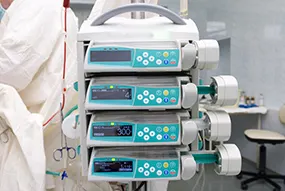Why Do Hospitals Lease Medical Equipment?

By Ibby Smith Stofer and Robb Stevens
This question has been asked of me many, many times and the answer is not a simple one. The circumstances and considerations that the hospital, IDN, or other care provider face when determining which option is best can vary greatly when determining if they should lease or purchase.
Some of the things that must be considered include:
Capital availability: Can we use on hand cash for this? Or would we need to borrow funds? Are there other capital requirements that would be affected if we use funds for this device? Lease plans can provide greater budgetary flexibility that can limit the upfront impact on cash availability. In times when acquisition, alliances, and mergers are happening daily, preservation of cash will often tilt the decision to lease. Another consideration could include if the medical device is going to be revenue producing since it will often compete for funding for projects that will increase revenues including new service lines, parking structures etc. Approvals and timing tied to a purchase decision are often more complex and take longer than a lease plan approval.

Tax Incentives: Some equipment may include tax incentives if purchased outright that are not included with a lease option. Depreciation expense is another tax consideration that can influence the choice of lease versus purchase. Leases can be considered a business expense and may provide Tax Deductions.
Asset Ownership: The medical device that is purchased outright is an asset and carries no long-term contract or payment schedule. Leases can be structured to allow for ownership or defer that decision to the end of term. Off balance sheet financing is often attractive to facilities when debt ratios are of concern.
Total Cost of Ownership: Often leases can offer a lower cost of ownership dependent on the lease structure, inclusion of services and maintenance, and the expected end-of-lease term value. The costs of services and maintenance often are missed when making this type of decision. They can however, typically be included in the lease plan.
Technological Useful Life: Medical technology is continually being updated and upgraded and if purchased the provider will often have to defer an upgrade or replacement until new funds are available. Frequently, lease plans will allow for this situation and provide greater flexibility.
Flexibility: Lease plans can offer deferred payments to match to the next capital budget and rarely include fees for this flexibility. Also the ability to include the on going costs of service, upfront software and services allows the provider to have a simple payment or to allocate these at their discretion for internal accounting purposes.
Each decision and each facility must determine the factors that are favorable to their situation. There is no easy answer. Healthcare providers have used both options for many years and will most likely continue to do so.
